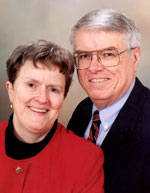It’s good to be reminded, or to realize for the first time, that caregiving is pro-life.
What seems so obvious can be easily overlooked, especially if you’re a caregiver. So busy (at times so overwhelmed) with your caregiving duties, you may tend to think that you no longer can contribute to normal duties. But you can also fail to notice what you are doing.
You’re the light of the world in a moment of darkness when it comes to the value of life.
The world needs this “light” — the example of love and selfless giving — that family caregivers offer.
The growing darkness doesn’t solely refer to promoters of euthanasia and assisted suicide in our time. It also refers to the public’s increasing willingness to accept that a human life has little or no value if that person isn’t seen as a contributing or productive member of society. Those who need care are viewed as burdens on taxpayers and families. And some who need care start to see themselves that way, too.
In the words of the Gospel, family caregivers are “the light of the world, a city set on a mountain,” and the lamp placed on a stand where it gives light to all in the house, in the words of Matthew.
Your compassion, dedication and hard work are testimonies to the value of human life.
You’re in our prayers as you live out your vocation of caring for your loved one.
Caregivers exemplify what we write about in “The Principles of Catholic Caregiving”:
— Love and respect. Whether you’re caring for an aging parent or other older family member, a spouse, a child with special needs or a friend, the bond between you and your loved one is like no other. You probably realize that this relationship, though seldom ideal and never perfect, remains a tremendously important part of your life. You’re now being given the opportunity and challenge to honor your mother and father, to love your spouse, to care for your child or friend in a new, different and more demanding way.
— Caregiving is pro-life. The “culture of life” includes providing care for a loved one who is sick, elderly, disabled or frail. A cornerstone of respect for human life is compassionate care for the most vulnerable among us at all stages of life, from the moment of conception until natural death.
— The spirituality of caregiving. Caring for a loved one is a vocation, a calling from God. It’s a mission and a role a caregiver accepts in the name of love and it is love itself which accompanies both the caregiver and the care-receiver on this journey.
An awareness of the presence of God, fostered by a turning to formal and informal prayer, helps you offer loving and compassionate care.
***
Bill and Monica Dodds can be contacted at BillandMonica@BillDodds.com. Their website is www.BillDodds.com.
PREVIOUS: Students should spend time outside our linguistic empire
NEXT: More reasons against capital punishment




Share this story